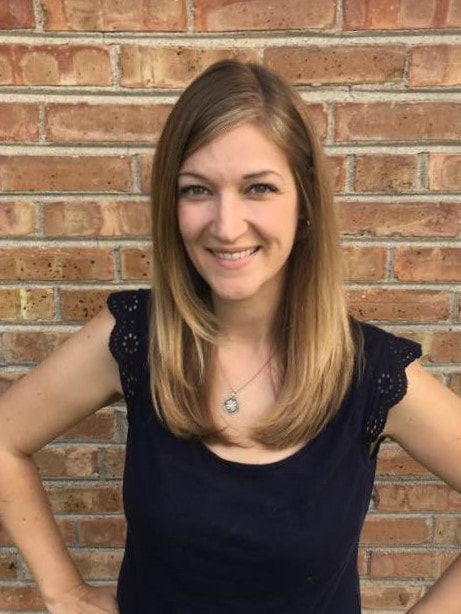Get to Know Me
|
As a therapist, writer, and speaker, I strive to be a catalyst for discovering what is underneath and bringing it to the surface. This may be where my love of humpback whales comes from. Part of our evolution is learning who we are and then creating a life consistently attuning to ourselves. This website is where you can find information on my somatic therapy practice, my writing life & publications, how to book me as a speaker or podcast guest, my blog, and resources to help you rediscover what makes you come alive. As a somatic therapist in private practice at Northwest Somatics, my hope is to help others transform trauma into a sense of self and a sense of worthiness. I believe in the healing powers of right-hemisphere processing (beyond language), grounding, intuition, stillness, and movement. We all have an innate ability to move in the direction of healing, but because trauma often happens in relationship, healing does too. When your trust has been broken, it takes courage to seek out help in the form of connection. My intention is to create an attuned space to discover your way forward. Creative writing is how I "walk the talk." I am my truest self when I am sitting at a coffee shop, sipping a latte, and typing on my computer. I love all genres: poetry, including English-language haiku, fiction, and creative nonfiction. I am currently pursing an MFA in Creative Writing from the Rainier Writing Workshop at Pacific Lutheran University in Tacoma, Washington. My works-in-progress are a novel and collection of essays and poetry. Over the years, working as a freelance writer has helped me develop my written communication skills, as well as, provided me with a platform to disseminate information on mental health and chronic illness, two things I am passionate about. I also share this information through speaking engagements and podcast interviews. What you need to know about me—I love to travel, do things I've never done before, read, and create. Last but not least, I adore my Jack Russell Terrier mix, Scooter. Don't ask me about him, because I won't be able to stop talking. |
Background
Life is a slow awakening and each stage of my life has been a learning experience.
I grew up in Minneapolis, Minnesota. Like most people, my youth and family shaped who I am today. My mom was an elementary school teacher, which taught me the influence of education. My dad studied sociology in college and his father was a social worker, which mirrored my deep desire to understand others. When I finally landed on a career path (after changing my major in college from musical theater...long story), I decided to become a school social worker. I majored in Human Services at Millikin University in Decatur, Illinois where I met my husband, Zach. Then, I went on to Loyola University Chicago to earn my Masters in Social Work. Chicago became my home for the next 14 years.
After graduate school, I worked as a school social worker at Evergreen Park Community High School in the suburbs of Chicago for 10 years. Then, life had different plans for me. I was diagnosed with Lyme disease and multiple autoimmune diseases. I struggled to keep up with the demands of the job. To focus on healing, I took a part-time job at DePaul University as a clinician in the Center for Students with Disabilities.
I believe if we take notice of our suffering there are messages hidden inside. For me, my diagnosis came at a time when I needed to reevaluate my life and my direction. It provided constant reminder to be true to myself and advocate for my needs. Would I have rather not gotten sick? Of course, but that wasn't an option for me. The road is long and winding, but the journey is leading me back to myself.
From there, everything changed when my husband and I went on a cruise to Alaska in the summer of 2017 for our 10th wedding anniversary. We fell in love with the mountains, the evergreen trees, and the fresh air of the Pacific Northwest. We followed our intuition to Seattle in February of 2018. The immense amount of privilege in my life does not go overlooked, in this case the ability to pack up and move across the country and the opportunity to live in such a enchanting place.
It was in the PNW I met my somatic therapy teacher, Dr. Sharon Stanley, who created a modality for healing trauma called Somatic Transformation. I'm so grateful to Sharon for introducing me to this profound practice and for the millions of lives she's touched in a sacred ripple effect.
As my health improved, which it continues to do, although with the profound peaks and valleys of complex illness, it was time to follow my aspiration to start my own business. Now I am a therapist in private practice at Northwest Somatics. I also work as a group facilitator for the Center for Chronic Illness and as a freelance writer.
I've always used writing as a way to express myself and cope with this extraordinary and sometimes heartbreaking life. Journaling, poetry, and creative writing were outlets in my childhood and continue to be a source of joy for me. Eventually, I wanted to put more emphasis on writing, especially creative writing, and decided to pursue an MFA in Creative Writing. I am currently enrolled in Rainier Writing Workshop at Pacific Lutheran University in Tacoma, Washington.
The journey continues. And I will continue to search for the specks of light in the dark and find ways to help others do the same.
Life is a slow awakening and each stage of my life has been a learning experience.
I grew up in Minneapolis, Minnesota. Like most people, my youth and family shaped who I am today. My mom was an elementary school teacher, which taught me the influence of education. My dad studied sociology in college and his father was a social worker, which mirrored my deep desire to understand others. When I finally landed on a career path (after changing my major in college from musical theater...long story), I decided to become a school social worker. I majored in Human Services at Millikin University in Decatur, Illinois where I met my husband, Zach. Then, I went on to Loyola University Chicago to earn my Masters in Social Work. Chicago became my home for the next 14 years.
After graduate school, I worked as a school social worker at Evergreen Park Community High School in the suburbs of Chicago for 10 years. Then, life had different plans for me. I was diagnosed with Lyme disease and multiple autoimmune diseases. I struggled to keep up with the demands of the job. To focus on healing, I took a part-time job at DePaul University as a clinician in the Center for Students with Disabilities.
I believe if we take notice of our suffering there are messages hidden inside. For me, my diagnosis came at a time when I needed to reevaluate my life and my direction. It provided constant reminder to be true to myself and advocate for my needs. Would I have rather not gotten sick? Of course, but that wasn't an option for me. The road is long and winding, but the journey is leading me back to myself.
From there, everything changed when my husband and I went on a cruise to Alaska in the summer of 2017 for our 10th wedding anniversary. We fell in love with the mountains, the evergreen trees, and the fresh air of the Pacific Northwest. We followed our intuition to Seattle in February of 2018. The immense amount of privilege in my life does not go overlooked, in this case the ability to pack up and move across the country and the opportunity to live in such a enchanting place.
It was in the PNW I met my somatic therapy teacher, Dr. Sharon Stanley, who created a modality for healing trauma called Somatic Transformation. I'm so grateful to Sharon for introducing me to this profound practice and for the millions of lives she's touched in a sacred ripple effect.
As my health improved, which it continues to do, although with the profound peaks and valleys of complex illness, it was time to follow my aspiration to start my own business. Now I am a therapist in private practice at Northwest Somatics. I also work as a group facilitator for the Center for Chronic Illness and as a freelance writer.
I've always used writing as a way to express myself and cope with this extraordinary and sometimes heartbreaking life. Journaling, poetry, and creative writing were outlets in my childhood and continue to be a source of joy for me. Eventually, I wanted to put more emphasis on writing, especially creative writing, and decided to pursue an MFA in Creative Writing. I am currently enrolled in Rainier Writing Workshop at Pacific Lutheran University in Tacoma, Washington.
The journey continues. And I will continue to search for the specks of light in the dark and find ways to help others do the same.
Connect
"Not all those who wander are lost." - J.R.R. Tolkien
|
Copyright © 2024 Kerry J Heckman All rights reserved. Disclaimer.
|
|

